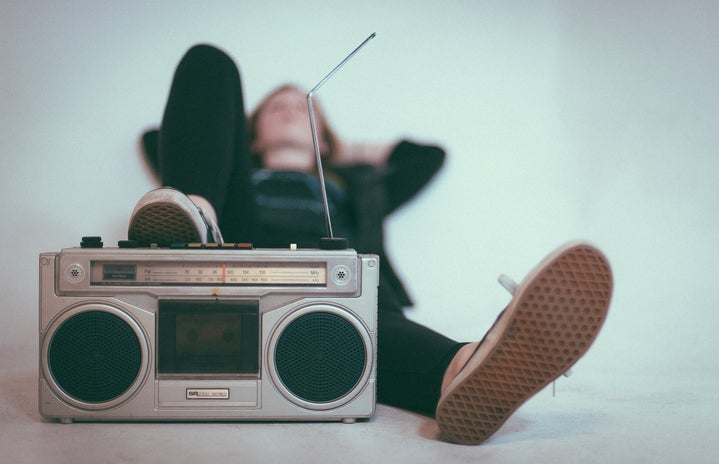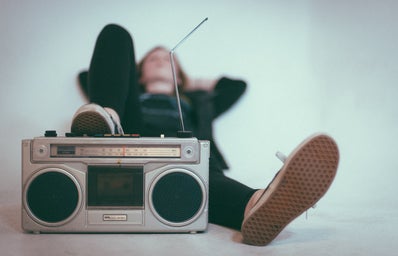Hyphy is the music of the Bay Area in California. It was created in Oakland, California also known as ‘The Town’ or ‘O-Town’, which is a part of the Bay Area. The Bay Area is home to singers like Kehlani, G-Eazy, MC Hammer and Saweetie. However, artists like E-40, Mac Dre, Keak da Sneak, Too $hort, Rick Rock, Mistah F.A.B. and the Federation, are also big contributors to the Bay Area music scene.
Many have probably heard hyphy-influenced songs, but just never realized it. One example is Gas Pedal by Sage the Gemini featuring Iamsu!. Gas pedal hit fame in 2013 and was then played at almost every party. It also elicited its own dance trend where people would handstand twerk against the wall.
As RateYourMusic.com explains, Hyphy was not created out of nothing, but instead grew from mobb music, another form of music created in the Bay Area. Mobb music was the Bay Area’s take on funk music in the early ’90s. The influence can still be heavily heard in a lot of Too $hort and E-40’s work.

In an interview with SF Weekly rapper, Keak da Sneak explained that hyphy came from his hyper behavior because when he was younger he would eat a lot of candy. Keak da Sneak and his friends would act hyper from their sugar-high and freestyle, resulting in animated lyrics leading to a matching energetic beat. Since Keak da Sneak coined the term many consider him the father of hyphy. However, it wasn’t Keak da Sneak who made hyphy “mainstream”.
Soon thereafter, rapper E-40 entered the scene. Some of his well-known songs include “I Don’t F*ck With You” or “ Choices (Yup)”. E-40, like many Bay Area rappers, helps the Bay carve out its own culture. E-40 was the one who made hyphy more mainstream with his popularized songs compared to Keak da Sneak, however, even then E-40 didn’t label himself a Hypy rapper.
E-40 is from the Bay but never explained that the influence of his music was the hyphy movement in the area. E-40 impacted the culture surrounding hyphy in other ways regardless. He coined terms like “The Yay” or “Yay Area”, which everyone in the Bay, regardless of music taste, calls it. E-40, in an interview with Vanity Fair, explains that many of the words people hear in his songs are just common Bay Area slang and that he and rapper Too $hort “were the first to ever put it on wax”.
Unfortunately, E-40’s label, the Warner Brothers, heard about the traction hyphy was gaining and decided to capitalize on it. Soon thereafter, they bought the rights to hyphy.com and branded hyphy as their own creation. They controlled the narrative put out to the masses about the origins of hyphy and those behind it. As a result of Warner Bros commercializing the Hyphy movement and trying to make it their own, they monopolized all the top talents like Too $hort, Keak da Sneak, Mistah F.A.B and The Federation. They stifled the movement by trying to control the production, generation, and dissemination of hyphy songs. This left a sour taste in the mouths of these rappers because many of them felt cheated by Warner Bros. Instead of giving credit to the culture, they monopolized and commercialized it.
Most great movements have a key figurehead most people recognize, however, Hyphy did not have a known leader or any form of organization. As stated previously, Keak da Sneak was considered the father of hyphy, however, in the same interview with SF Weekly, Keak da Sneak explained that he “didn’t really like the definition that people were making for [hyphy]. So I wasn’t gon’ step up”. Hyphy wasn’t organized in a fashion where it could gain traction nationwide. It was a very individual journey. In the same interview, rapper Rick Rock explained that the hyphy movement didn’t have the same organization as the crunk movement in Atlanta, but instead was “40 was just 40, Keak was just Keak, the Federation was the Federation”.
Many of the rappers who grew into figureheads of the movement felt jibbed by the commercialization of hyphy. They felt as if it had become corrupted and it was not what they wanted to associate themselves and their work with.

However, hyphy doesn’t stop there. Because of the distinct hyper beat that hyphy encompassed, a distinct dance type became associated with the sound.
The most well-known dance is called the Smeeze. Once you watch the actual dance you may soon realize you have seen it on Tik Tok. The Smeeze is like an energized side-to-side step with some arm flares. It is one of those dances that looks so easy off the bat but the coordination needed is astounding.
On Tik Tok, there is a group called the Next Kidz and they are a phenomenal dance group out of the Bay Area. They know all the distinct Bay Area dance styles and pair them with distinct Bay sounds.
Today hyphy has lost its traction and momentum because of the commercialization and narrative created by big labels. Like Rick Rock said, “each rapper was just a rapper who rapped”, whose sound was influenced from their background. Hyphy’s music influence never reached very far outside of the Bay Area, yet it remains a hidden gem for those who find it and get to experience it.



